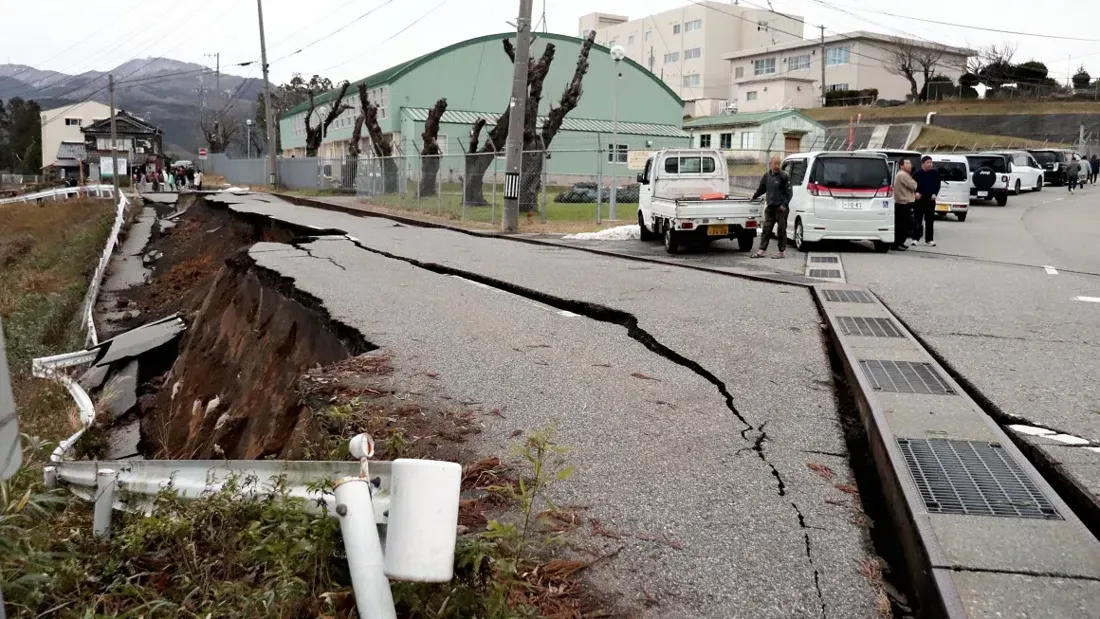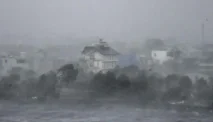Diksia.com - A total of 18 Indonesian citizens living in the city of Suzu, Ishikawa Prefecture, rushed to save themselves when a powerful earthquake struck the Noto Peninsula near Ishikawa Prefecture. They ran into the mountains.
The earthquake that struck Ishikawa on Monday (01/01/2024) had a magnitude of 7.6 and triggered tsunami waves on the north and central coast of Japan. Tsunami waves are estimated at 5 meters at several official warning points. So far, waves of up to 1.2 meters high have hit the port of Wajiima in Ishikawa Prefecture.
As a result of the earthquake, the power grid failed, several areas caught fire and residents fled.
The Japanese government has actually ordered residents of the coastal Noto area of Ishikawa Prefecture to immediately evacuate to the highlands.
Together with Japanese citizens, Indonesian citizens made their way to the mountains. At this point the outside temperature was 0 degrees Celsius. To warm themselves, they built a campfire.
Rizal Sokobiki, one of the 18 Indonesian citizens forced to spend the night on a hill after the earthquake, said the power was out and there were still aftershocks, so they decided to stay outdoors. Dozens of Indonesian citizens work on fishing boats and live in beachside dormitories.
“It is very close to the sea, just 200 meters from the dorm to the hill you can see the sea. Because there was a tsunami warning, everyone ran up the hill,” Rizal, an Indonesian citizen from Tuban, East Java, told journalist Sri Lestari, reporting for BBC News Indonesia.
Rizal said that the refugee camp provided by the government was quite far from his place of residence. He said he only brought some drinking water and snacks for the night.
When the earthquake struck, he and his colleagues were resting in the dormitory because they were off duty at sea. “All the children were resting in their rooms, some were eating and everyone was running away,” he said.
In the two years he has worked in Ishikawa, he said this was the first time he had felt a fairly strong earthquake.
Meanwhile, Wawan Supriyanto, an Indonesian citizen living in Kahoku City in Ishikawa Prefecture, felt the earthquake shock while shopping at a home appliance store. This 41-year-old man said the earthquake shock caused the steel framework in the store to collapse.
Kahoku is about 1.5 hours drive from the city of Noto. He said he had only lived in Ishikawa for five years before he felt an earthquake of that magnitude.
“Very shocked… Just today I felt a pretty strong earthquake, I’m used to it, but why is it getting louder and scarier,” Wawan said.
“The building was designed for us to stay there and it was so big that the metal fell down on top of me. Everything fell,” he said.
Wawan said the Japanese government issued a tsunami warning via email after the earthquake, so he and his family decided not to return to the apartment and moved to higher ground and away from the beach. He said his apartment was near the beach, so the risk was high.
“We didn’t dare go back to the apartment because it happened to be close to the beach and we received an email warning from the city council that we should evacuate. Don’t go back to the apartment,” he said.
The Indonesian Ministry of Foreign Affairs is working with the Indonesian Embassy in Tokyo and the Indonesian Consulate General in Osaka to assess the impact of the earthquake and tsunami in Japan. Coordinator of the Information, Social and Cultural Function of the Indonesian Embassy in Tokyo, Meinarti Fauzie, said that there are 1,315 Indonesian citizens in Ishikawa Prefecture, 1,344 in Toyama Prefecture and 1,132 Indonesian citizens in Niigata Prefecture.
The Indonesian Embassy in Tokyo and the Indonesian Consulate General in Osaka have appealed to Indonesian citizens to remain vigilant in the face of aftershocks and tsunamis and to always monitor information and instructions from local authorities.
“The tsunami warning along the west coast of Japan was only lifted this evening Japan time,” Meinarti said.






